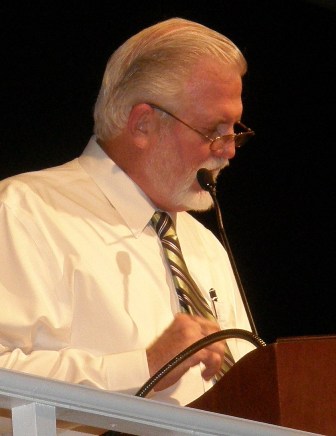Kids homes to be revamped as theraputic centres
 (CNS): Faced with what the community affairs ministry has said is an urgent need to build local capacity to help youth in need of intervention, there is now both a short-term and long-term plan to adapt what is known as the Missouri Model of youth rehabilitation in the Cayman Islands. In the short-term, the Bonaventure Boys Home and the Frances Bodden Girls Home have been earmarked to accommodate this therapeutic community programme. The long-term plan is for a residential Youth Centre, also based on the Missouri principles, to be built in accordance with the government’s constitutional obligation to separate juvenile prisoners from adult prisoners by 6 November 2013.
(CNS): Faced with what the community affairs ministry has said is an urgent need to build local capacity to help youth in need of intervention, there is now both a short-term and long-term plan to adapt what is known as the Missouri Model of youth rehabilitation in the Cayman Islands. In the short-term, the Bonaventure Boys Home and the Frances Bodden Girls Home have been earmarked to accommodate this therapeutic community programme. The long-term plan is for a residential Youth Centre, also based on the Missouri principles, to be built in accordance with the government’s constitutional obligation to separate juvenile prisoners from adult prisoners by 6 November 2013.
“While the Ministry recognises that the Cayman Islands is experiencing the full impact of the global economic downturn, if we do not make a commitment to invest in our youth and build local capacity, the country will continue to see rising crime levels, higher levels of unemployment, the breaking down of families and communities and a greater strain being placed on the health care, the welfare and criminal justice systems,” said the minister with responsibility for community affairs, Mike Adam. “Our pillars of the economy, tourism and financial services will also be negatively impacted. We have the opportunity and not only the legal but also the moral duty to chart the way forward with empowering our children and youth, strengthening our community and securing the future of these Islands.”
The minister has revealed on several occasions his desire to use the Missouri Model here, which has revolutionized the issue of youth rehabilitation. The model addresses the needs of youth at risk in order to avert their negative behaviours, promote their strengths and empower them. A delegation from government travelled to Missouri to examine the programme in action.
Thirty years ago, Missouri closed its correctional juvenile facilities and began offering a more humane, constructive and positive approach. On their visit, the Cayman delegation toured a day treatment programme, Star Day Treatment, for low risk youth and two male secure facilities, Northwest Regional Youth Centre and Riverbend Treatment Centre, for youth who exhibited the most serious offending behaviour.
“The youth we met were confident, articulate, insightful, goal-orientated, eager to share their experiences and they were hopeful and excited about their futures. It was the realisation that staff genuinely cared for their well-being that was one of the major catalysts for change,” said Adam.
The Missouri Division of Youth Services (DYS), the agency that oversees youth rehabilitation programmes says that three years after discharge 93% of DYS youth have avoided further incarceration, while over 86% are productively involved in their communities through school or work. Missouri’s recidivism rates are consistently lower than in other states, in which youth are twice as likely to be re-incarcerated.
Missouri’s recipe for success is a dedication to helping delinquent youth make deep and lasting changes to prevent future negative behaviours. The agency has built a therapeutic treatment system based on the beliefs that all people have a desire to do well and succeed; all behaviour has a purpose and is often a symptom of unmet needs; and family engagement is vital in the treatment process.
The model is structured in such a way that youth are actively engaged in the process of change at all times, unlike correctional juvenile facilities where rigid rules, external controls andcoercive power attempt to force compliance.
The minister said the approach was not “a soft approach to delinquent behaviour”, but was a harder, more demanding approach in which the young people must deal with their most difficult and traumatic issues “and take responsibilityfor their actions and behaviour”.
The delegation included the minister of community affairs, ministry staff, a representative from Judicial Administration, the Royal Cayman Islands Police Service, Public Works Department, the Department of Children and Family Services and the Ministry of Education, Training and Employment.
To learn more about the Missouri Model, read the independent review by the Annie E. Casey Foundation at www.aecf.org or visit the Missouri Division of Youth Services website at www.dss.mo.gov/dys/.
Category: Local News


Work for the Division and those numbers are way off base.
This is a very forward thinking move that is much needed. Children are not intrinsically "bad". This programme trys to eal with the true issues that lead to criminal behaviour. Hopefully it will be implemented correctly so that our children and also society can benefit.
http://abcnews.go.com/Video/playerIndex?id=8533158